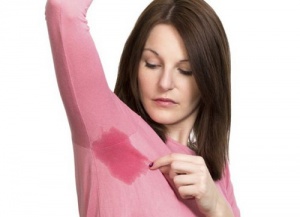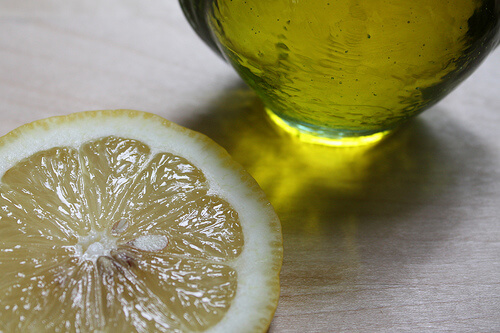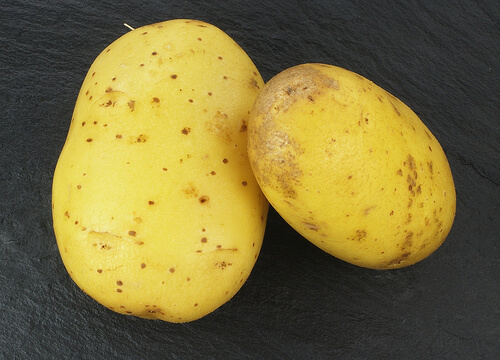How to Prevent Excessive Sweating

Everybody sweats, especially during the summer and if you play sports or work out. But the real problem is if you start to sweat too much, and it’s even worse if you start to stink. There’s nothing worse than wearing a shirt that has huge armpit stains. So, today we’re going to give you some tips and at-home tricks to prevent excessive sweating.
What’s the difference between “normal” and excessive sweat
Sweat, or perspiration, is how the body eliminates toxins, impurities, and some fats. Sweat is produced by the apocrine glands, which also secrete pheromones, a source of sexual attraction. But in today’s society, those smells can just be a cause for rejection.
Diet, genetics, and medications are just some of the causes of excessive sweating. The medical name for this condition is hyperhidrosis. Along with the underarms, it can also affect the face, hands and feet, and about 5% of the world’s population has the condition.
Cosmetic products aren’t a great solution because perfumes and deodorants only “mask” the problem. Plus, they can also irritate the skin over time.
Tips to prevent excessive sweating
- Be realistic: A common problem with people who sweat heavily every day is that they unconsciously tell themselves, “this time I won’t sweat.” But it doesn’t work that way. They feel frustrated, embarrassed, even depressed when they sweat. Just look at it as something normal, everyone deals with it. No stress.
- Always have water with you: Having a bottle of water in hot places or when it’s very sunny out is like finding an oasis in the desert. This change in your habits will keep you hydrated while you’re sweating, and will also help remove toxins from the body, burn fats, and improve the health of your skin, nails, and hair.
- Remember that sweat always dries: Sure, you feel damp and you don’t see an end to it. But once you get in a more comfortable location your clothing will dry out along with your underarms or feet.
- Avoid caffeine: Caffeine isn’t just in coffee, it’s also in teas and soft drinks. You’ll feel calmer and might sweat less if you stick to juices and water instead of having a latte.
- Wear clean, loose-fitting clothing: All lycra and other synthetic fabrics do is aggravate the problem. The best choices are cotton shirts and socks that aren’t “skin tight,” allowing the pores to breathe. Avoid wearing very dark colors and choose white or light tones instead.
Read more:
5 Reasons to Drink Coffee
Home remedies to help prevent excessive sweating
Make a homemade deodorant or antiperspirant
The kind you buy in stores only mask the smell – they don’t actually stop sweating and can actually clog your pores with impurities (sometimes causing underarms to appear darker than normal).
To make a natural deodorant you’ll need:
- ¼ cup of baking soda
- 8 tablespoons of unrefined coconut oil
- ¼ cup of cornstarch
- a few drops of your favorite essential oil (optional).
Once you’ve gotten your ingredients, you should:
- Mix the baking soda and cornstarch, then add the coconut oil, and stir well.
- Store it in the refrigerator until it solidifies.
- Apply it to the underarms, but take care not to use it right after shaving.
Here’s another recipe for homemade deodorant:
- Take half a cup of vinegar and add 30 drops of an essential oil like rosemary or lavender.
- Store the mixture for a week in a container with a tight lid in a dry place, keeping it out of direct contact with light.
- Place three tablespoons in the bath water before you bathe.
Exfoliation
Sweat can be caused by clogged pores, which sometimes happen because of daily use of soaps and other body products. The best natural exfoliants are things like oatmeal, sea salt, coffee grounds, and lemon juice. Rub any of these onto the area where you sweat excessively twice a week, before bedtime.
 Milk of magnesia
Milk of magnesia
This a good natural deodorant that controls perspiration and also limits body odor. Another option is to rub turnip root under the arms or in areas where excess sweating occurs.
Steam baths
These help eliminate toxins as they “pass through” the pores. They also relax your mind and body, reducing stress levels. Take a steam bath for up to 20 minutes every day, drinking plenty of water to stay hydrated.
Antiperspirant powder
One of these powders can absorb moisture and kills odor-causing bacteria. A good option is to mix a tablespoon of cornstarch with a few drops of your favorite essential oil, and apply it directly after the shower.
Herbal teas
Herbal teas, especially ones with sage, are great at reducing perspiration. Sage is rich in vitamin B and magnesium, which can help reduce sweat gland overstimulation. Don’t drink more than two cups a day and be sure not to make the tea too strong – it can be harmful to your health.
Grape or tomato juice
Drinking either of these can help the body regulate its temperature and avoid overheating, which is one cause of sweat. Drink a glass every day or every other day in the morning. This can also help reduce the risk of cancer or heart disease.
Potatoes
As strange as it might sound, potatoes can also help prevent excessive sweating. Cut a few slices of raw potato and rub the juice on the skin. Let it dry and then rinse the area with soap and water.
You might like:

We hope you’ve enjoyed these tips and at-home tricks to prevent excessive sweating. If this is something you struggle with, give some of them a try!
All cited sources were thoroughly reviewed by our team to ensure their quality, reliability, currency, and validity. The bibliography of this article was considered reliable and of academic or scientific accuracy.
- Heckmann, M., Ceballos-Baumann, A. O., & Plewig, G. (2002). Botulinum Toxin A for Axillary Hyperhidrosis (Excessive Sweating). New England Journal of Medicine. https://doi.org/10.1056/nejm200102153440704
- Marcy, T. R., & Britton, M. L. (2005). Antidepressant-induced sweating. Annals of Pharmacotherapy. https://doi.org/10.1345/aph.1E564
- Fealey, R. D. (2012). Disorders of Sweating. In Primer on the Autonomic Nervous System. https://doi.org/10.1016/B978-0-12-386525-0.00115-3
- Owen, K. (2016). Excessive Sweating: Are Patients Suffering Unnecessarily? Journal for Nurse Practitioners. https://doi.org/10.1016/j.nurpra.2015.09.015
This text is provided for informational purposes only and does not replace consultation with a professional. If in doubt, consult your specialist.








